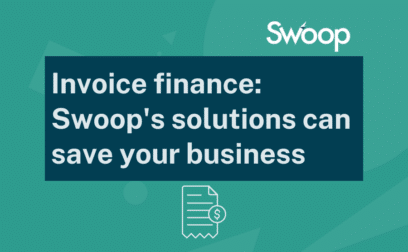Swoop requires writers to use primary sources to support their work. These include white papers, government data, original reporting, and interviews with industry experts. We also reference original research from other reputable publishers where appropriate.
90% cash crunch: https://www.internationalaccountingbulletin.com/comment/xero-delving-deeper-into-the-cash-flow-challenges-affecting-small-businesses/
Business loans: https://swoopfunding.com/uk/business-loans/small-business-loans/
Revolving credit line: https://swoopfunding.com/uk/business-loans/revolving-credit-facility/
Invoice finance: https://swoopfunding.com/uk/business-loans/invoice-finance/
Invoice factoring: https://swoopfunding.com/uk/business-loans/invoice-factoring/
Trade finance: https://swoopfunding.com/knowledge-hub/trade-finance-loan/










































 yet? Register here!
yet? Register here!